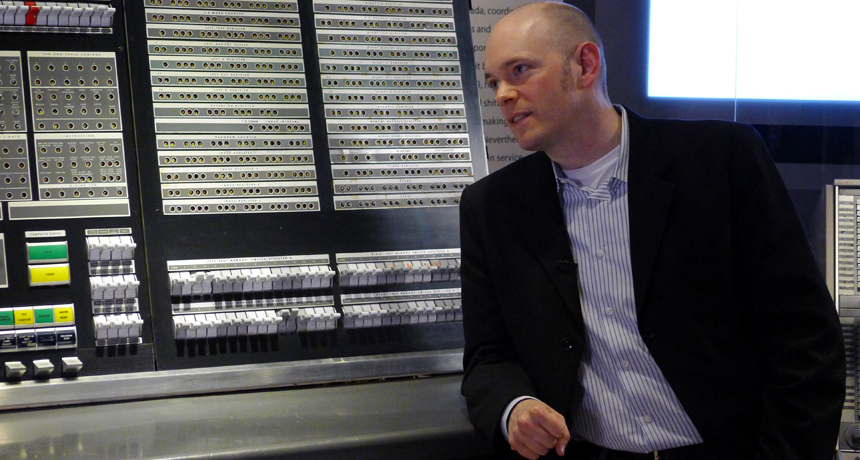Explainer: Some schools already teach future studies
Full preparation for a career as a futurist may require more than a firm grounding in science or engineering

Brian David Johnson stands in front of a vintage computer at the Computer History Museum. With computers, the future seems to arrive much more quickly than it does in many other industries. It’s important that educators today train the futurists of tomorrow to think broadly and creatively.
Joe Zawadsky, Intel Corp







